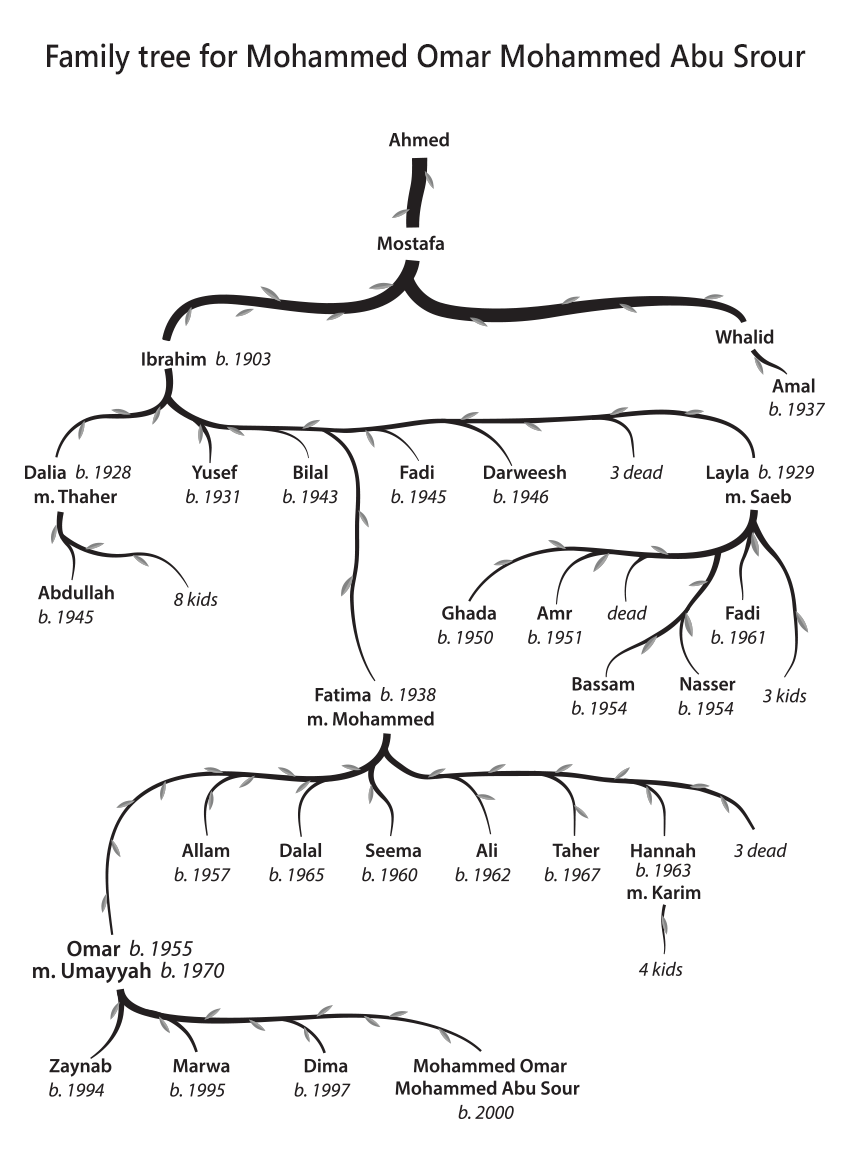Study guide for “Old Enough to Know”
Improve your student's understanding of literature with study guides.
Here are our recommended topics for the book “Old Enough to Know” by Alice Rothchild.
Thinking about the novel, yourself, and your friends:
Name a time when you felt different from your peers, maybe the first day at a new school, or summer camp, or an afterschool/church/mosque/temple/sports activity where you did not know anyone. How did people react to you? How did you feel? Name three things that helped you feel better, helped you cope with feeling different. Write a poem about that feeling.
Explain the meaning of Mohammed Omar Mohammed Abu Srour’s full name.
What is your full name? Do you know where your name came from and what it means or refers to or connects you to?Think about your relationship with your grandmother, grandfather, or an older relative or friend. Was there something they shared about their past that was helpful to you, surprised you, made you look at your life differently?
Mohammed’s grandmother, (his sitti in Arabic or Fatima, her given name), shares her life story because she thinks Mohammed needs to know where he came from, what his family has experienced before moving to the United States. The book tells much of her story as flashbacks. Did learning of her personal history make her feel more real to you? Write about a moment in your family or a close acquaintance’s history - in the present tense. Pretend you are that person.
Foods are very important in Mohammed’s story, partly because he likes to eat and partly because that is one of the ways his grandmother shares her Palestinian culture with him and shows him her love. What did she mean when she said:
Your name, what we eat. It is much more than hummus and pita bread
and some mean boy at school. This, Mohammed, is about who we are.What did Noah mean when he wrote: TOFU MEET HUMMUS?
Why does Jacob only eat salami sandwiches for lunch? What does that tell us about him?
Name three foods that are important to your own family or the people who are raising you. How do these foods link you to your grandparents or family history or people who care for you?
Look at Mohammed’s family tree; draw your own family tree, as much as you can.
Locate on a map what countries your family came from. If you do not know, find an older relative or family friend who could help you. Be a detective.
Interview an older relative in your family or an older friend and find out about your family history or their family history. Think of ten questions you could ask.
Why does Mohammed feel like Shirley, the hamster?
Sometimes at school or on the playground there are kids who act like bullies, like Jacob did to Mohammed. Have you had a bullying experience and how did it feel? Name three things a kid can do if they feel bullied. Why do you think Jacob acted like a bully and how did Mohammed respond to that new information about his classmate?
Mohammed’s grandmother is a refugee from Palestine. Define “refugee.” Name five other refugee populations that you know. What do they have in common?
What is different?Name ten things Noah and Mohammed share. How does their status as
“outsiders” affect their friendship?
Make a list of ten things you learned about Palestine from Sitti’s story.
What kinds of struggles does Zaynab face? How does she deal with bigotry towards her for being a Muslim girl and wearing a hijab? What would you do if you or a friend were being harassed or targeted for your religion? Country of origin? Clothing? Religious symbols? What should your school be doing to make the school welcoming to all kinds of students?
Discuss the objects and symbols Sitti shares with Mohammed and Zaynab, and their meaning:
Old key
Hijab
Scarves
Gold coins
Photograph
Gold bracelets
Brown paper packets of seedsWhat does Mohammed mean when he says:
Sitti, maybe you never planted those seeds in the garden, but you
definitely planted them in me.Is Mohammed’s growing understanding of his sitti’s life, rocks or wings? What does that expression mean in this story?
Talking with teachers and librarians, fellow children’s book writer Nora Lester Murad and I became of aware of the importance of teaching books about Palestine as part of an anti-racist, anticolonial curriculum that enables children to understand the world in all its diversity. It also became clear that some teachers and librarians face pushback for engaging in this topic; one tactic is falsely accusing the teacher or librarian of antisemitism. We developed a A toolkit to help teachers and librarians to anticipate and navigate false accusations of antisemitism. We hope this will be of use in the K-12 world of children’s literature.

